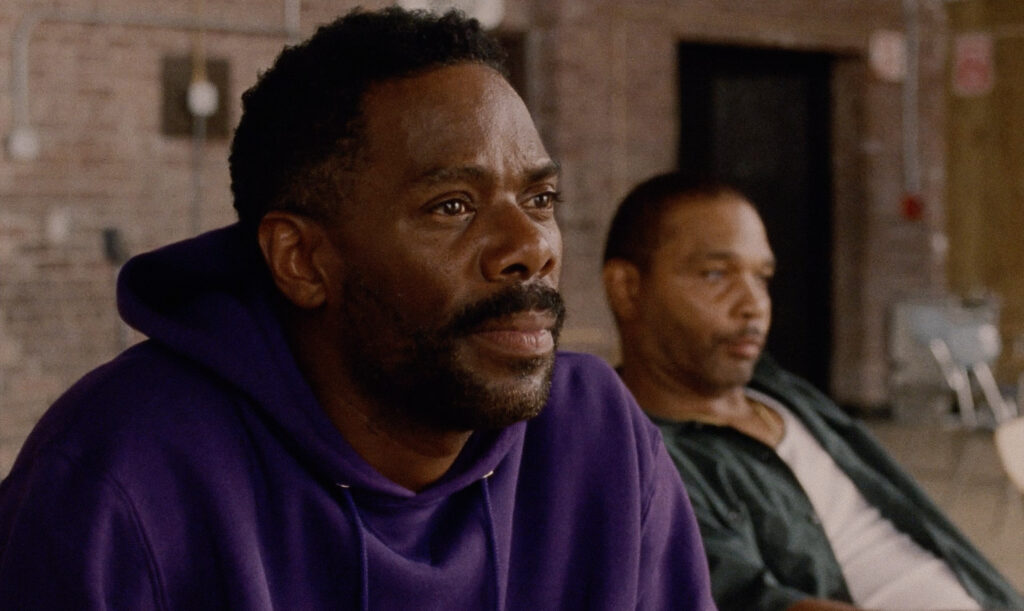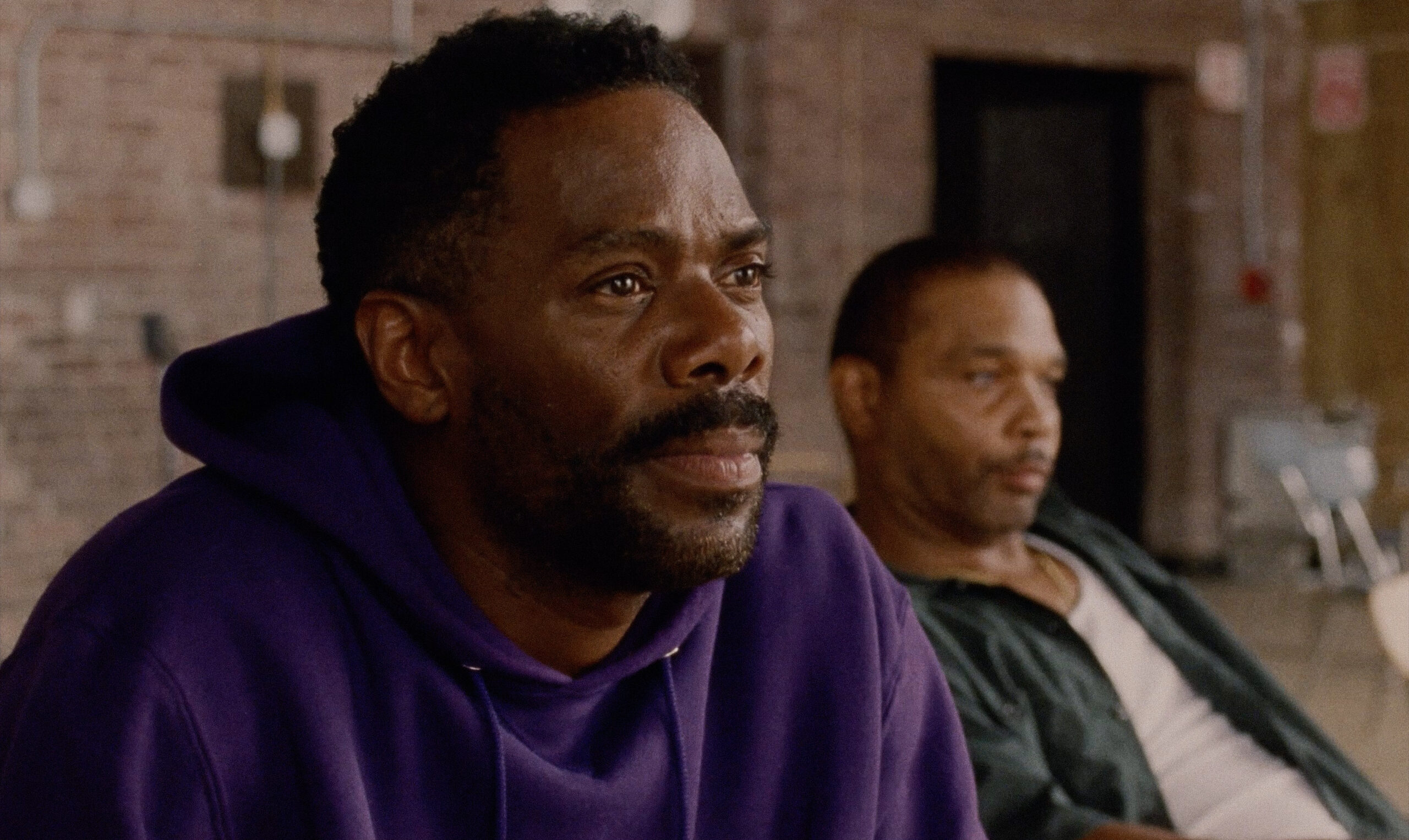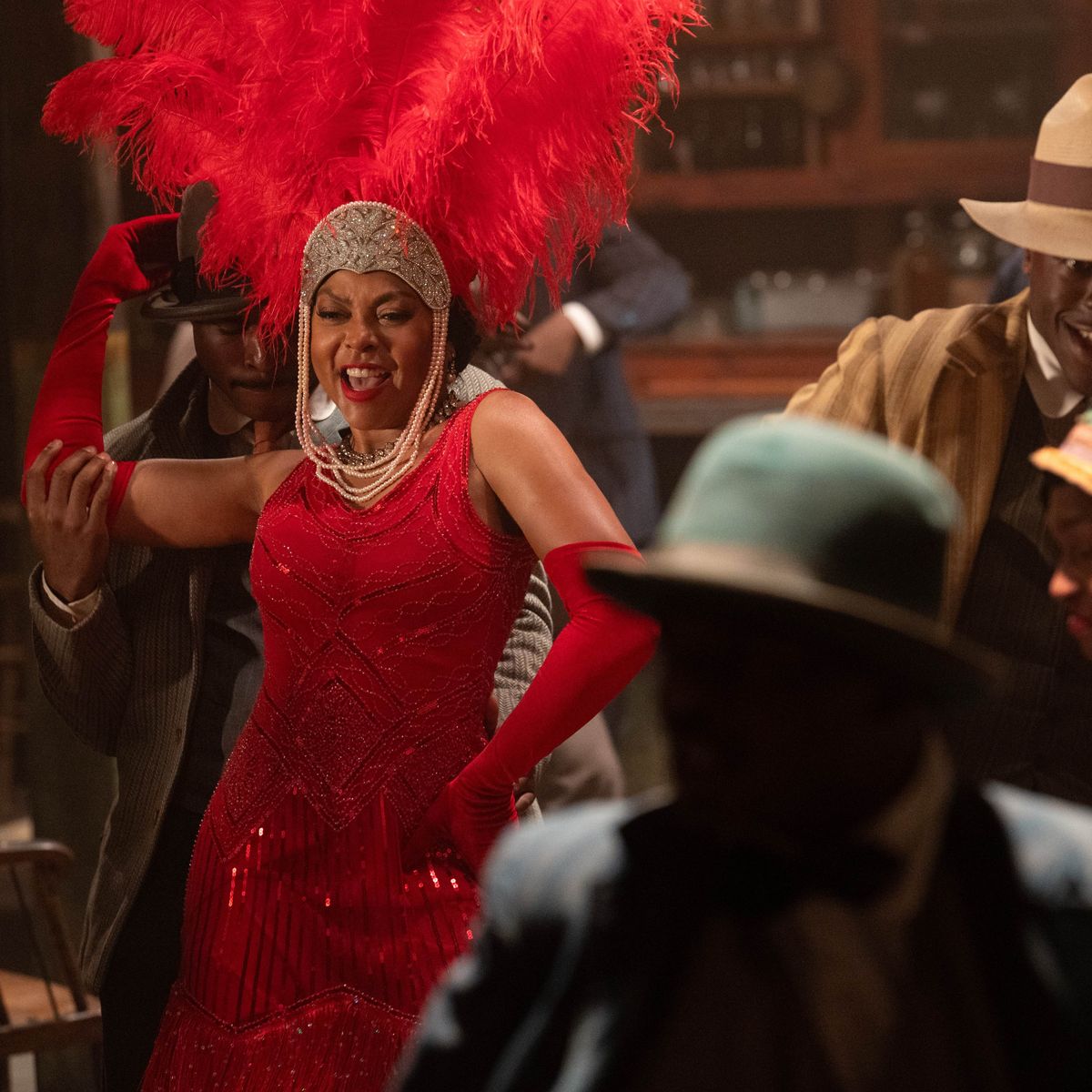Sing Sing
Posted on August 1, 2024 at 6:20 pm
A-| Lowest Recommended Age: | High School |
| MPAA Rating: | Rated R for language |
| Profanity: | Very strong language, n-word |
| Alcohol/ Drugs: | References to drug dealing |
| Violence/ Scariness: | References to armed robbery and murder, fights, sad deaths of human and pet |
| Diversity Issues: | A theme of the movie |
| Date Released to Theaters: | August 2, 2024 |
Actors playing kings are wearing robes of velvet, encrusted with jewels. They take their bows to enthusiastic applause. Then they go back to the dressing room, remove their costumes, and put on the clothes they wear all day, every day, their prison uniforms. These men are incarcerated in the famously bleak maximum security prison in New York, the one with the deceptively upbeat name Sing Sing (derived from the name of the Indian tribe that once occupied the land).

The RTA (Rehabilitation Through Art) program at Sing Sing was created by the men who are incarcerated. Esquire wrote an article about it called “The Sing Sing Follies (A Maximum Security Comedy),” and that inspired Clint Bentley and Greg Kwedar, the co-screenwriters of the indie gem “Jockey” to start from scratch with their own research, interviewing the participants in the RTA program. Colman Domingo came on as star and co-producer. Most of the cast are formerly incarcerated men cast as characters based on their own experiences. Unusually, and crucially, the producers of the film put their money where their mouths were, and everyone, including the crew and the first-time screen actors, had equal pay and has an equal participation in the film’s profits. At a screening held at the Smithsonian’s National Museum of African American History and Culture, co-star Clarence “Divine Eye” Maclin told said in a post-screening Q&A that the recidivism rate of participants in RTA is 3 percent, as compared to over 60 percent for the rest of the prison population.
Domingo gives what is clearly one of the best performances of the year as Divine G, a founder of the theater program. Divine G is an author and playwright. His tiny cell includes a typewriter and stacks of books. He helps other incarcerated men prepare for their parole hearings and is seeking clemency for himself, based on a taped confession that has been discovered since his trial and appeals. He feels a genuine brotherhood with the others, but he still has a sense of pride in his education and accomplishments. We get glimpses of his sense of superiority. (Note: the character we see briefly, asking Divine G to sign a copy of one of his books, is the real Divine G.)
“The Sound of Metal’s” Paul Raci plays Brent, a patient and sympathetic outside facilitator of the small theater group, who gives them exercises (“Now walk like you just won the lottery! Now like a zombie!” “Now close your eyes and imagine a place where you feel happy and peaceful”) and guides them through the stages of production. Divine G offers them a play he wrote about corruption in the recording industry, but the men want a story about cowboys, ancient Egypt, Robin Hood, time travel, and Hamlet, and Brent agrees to write the script for them.
The RTA participants realize quickly that there is a freedom within the walls of their rehearsals that they do not have anywhere else. They realize more slowly that participation unwinds tightly coiled emotions they hid from others and did not not even acknowledge to themselves. The protective wall they have used all their lives, the one they may think keeps them alive and not obsessed with the absence of hope, the one that communicates confidence, power, and hostility — that has to be abandoned if they want to be a part of RTA. By trying on the characters they play, they explore feelings they would not let themselves acknowledge. They make themselves vulnerable to being known, by their casemates, by their audiences, by themselves. They go from being afraid of being seen to inviting others to see them.
One detail that audiences may find heartbreaking comes when Brent asks the men to close their eyes and imagine a place where they feel at peace. Some of the men cannot put themselves in a place outside the walls of the prison, even in their imagination. One they may find touching is when Divine G points to a small open square, smaller than a postcard, in the metal screen on the window. He likes to look at that square. It makes him feel in touch with the outside. Another is when a formerly incarcerated man returns to encourage the men and tell them what his experience has been like on the outside.
And one they might find jarring, at least at first, is the way the men in RTA address each other as “Beloved.” The real-life Divine G, a producer and writer on the film, told me that they chose that word to replace the n-word, which the men were using as a kind of semi-hostile, semi-insulting term of affection. His co-founder, Sean Dino Johnson, who appears as a character inspired by his own life, told me the first play the group put on was about the history and import of the n-word.
Domingo is extraordinary here, conveying his character’s struggles with the subtlest details of expression and posture. He is matched along the way with the RTA alumni, especially Clarence Maclin as a character with his name and some of his history. Two men begin to trust one another and then, unabashedly, proudly, call each other “beloved,” setting up the story for an ending of enormous power and meaning.
Parents should know that this story takes place in a maximum security prison and some characters are there because they were drug dealers, armed robbers, or murderers. They take responsibility for their choices but the focus of the film is on the human capacity to learn and get better. Characters use very strong language, including the n-word. There are sad deaths of a human and a beloved pet.
Family discussion: What is your most perfect spot? Why is laughter so important in the rehearsal room? What play would you like to be in?
If you like this, try: “The Quilters,” a short documentary about a program that teachers men in prison to make quilts for foster children, “Greenfingers,” with Clive Owen, based on a program in the UK where men in prison create gardens.



